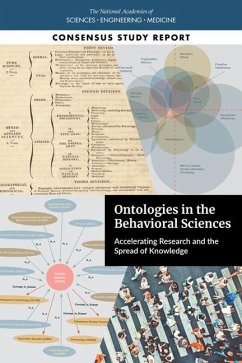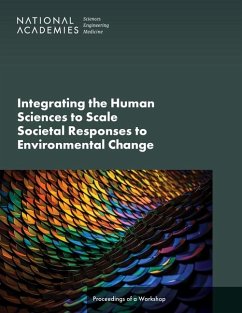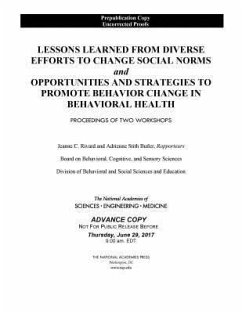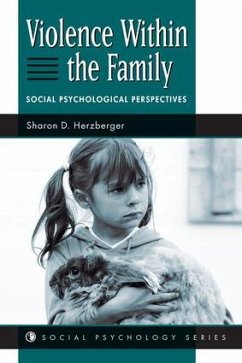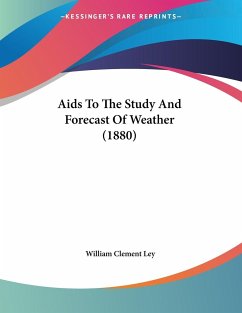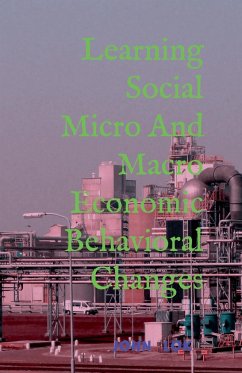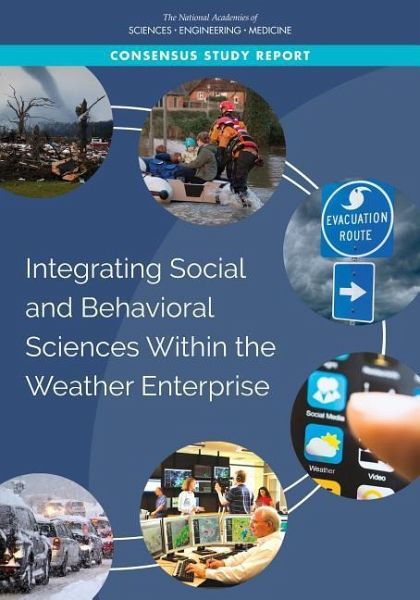
Integrating Social and Behavioral Sciences Within the Weather Enterprise
Versandkostenfrei!
Nicht lieferbar
"Our ability to observe and forecast severe weather events has improved markedly over the past few decades. Forecasts of snow and ice storms, hurricanes and storm surge, extreme heat, and other severe weather events are made with greater accuracy, geographic specificity, and lead time to allow people and communities to take appropriate protective measures. Yet hazardous weather continues to cause loss of life and result in other preventable social costs...There is growing recognition that a host of social and behavioral factors affect how we prepare for, observe, predict, respond to, and are i...
"Our ability to observe and forecast severe weather events has improved markedly over the past few decades. Forecasts of snow and ice storms, hurricanes and storm surge, extreme heat, and other severe weather events are made with greater accuracy, geographic specificity, and lead time to allow people and communities to take appropriate protective measures. Yet hazardous weather continues to cause loss of life and result in other preventable social costs...There is growing recognition that a host of social and behavioral factors affect how we prepare for, observe, predict, respond to, and are impacted by weather hazards. For example, an individual's response to a severe weather event may depend on their understanding of the forecast, prior experience with severe weather, concerns about their other family members or property, their capacity to take the recommended protective actions, and numerous other factors. Indeed, it is these factors that can determine whether or not a potential hazard becomes an actual disaster. Thus, it is essential to bring to bear expertise in the social and behavioral sciences (SBS)--including disciplines such as anthropology, communication, demography, economics, geography, political science, psychology, and sociology--to understand how people's knowledge, experiences, perceptions, and attitudes shape their responses to weather risks and to understand how human cognitive and social dynamics affect the forecast process itself"--




